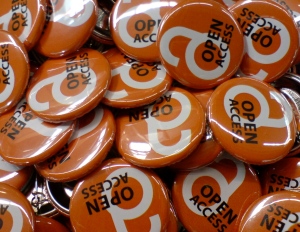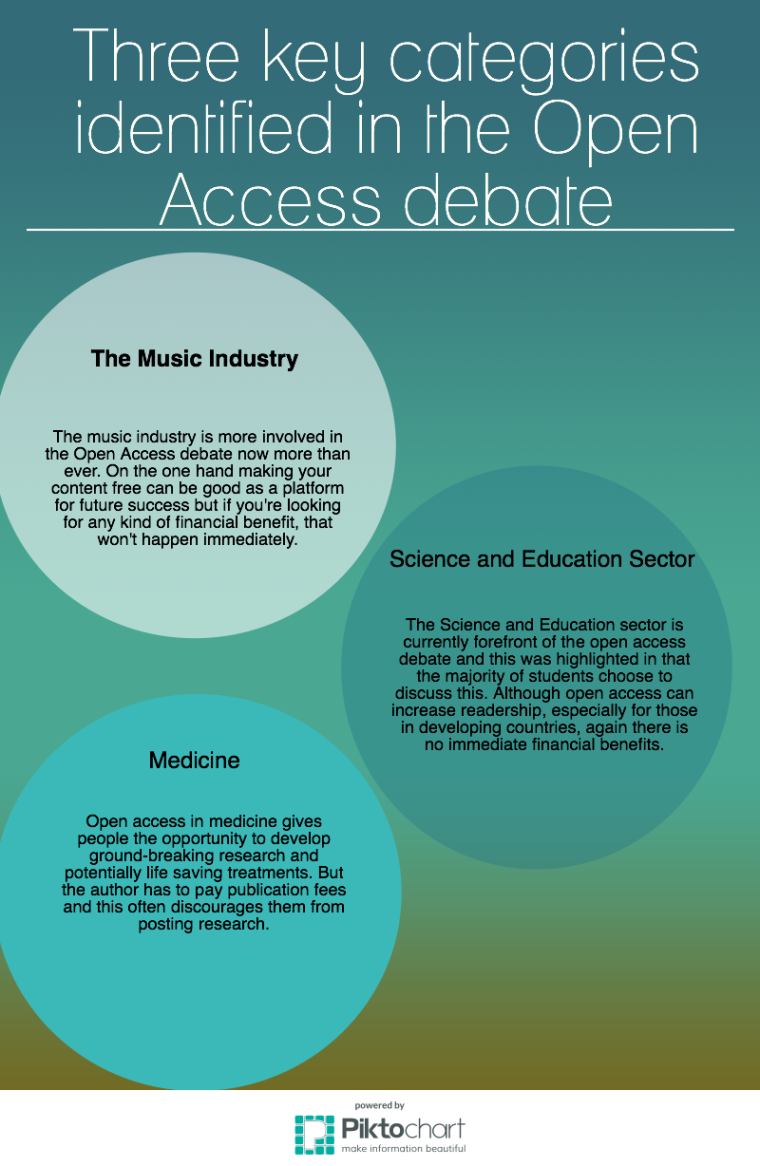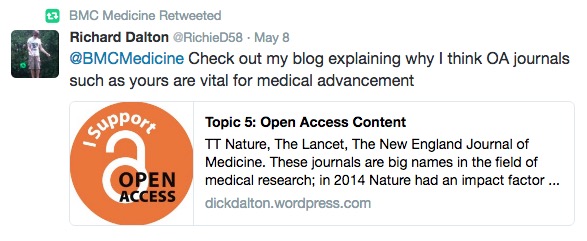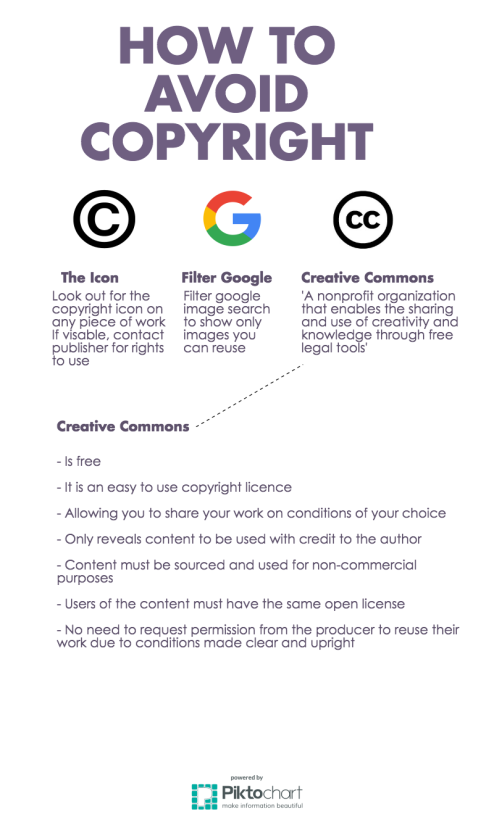
Topic 5 reflection
This week, as for the last topic, we have probably been given one of the most debatable topic out of the total 5: to discuss the advantages and disadvantages of Open Access, its benefits for our society and whether it is sustainable for the long-term (especially from the publishers’ point of view)…
The topic can be approached from several completely different point of views and it was interesting to see that some of us took the topic into a professional context and talked about its use...
Continue reading →



















